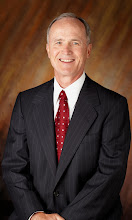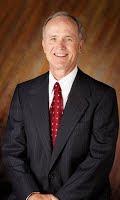Recently Warren Buffett expressed his view that Goldman Sachs had acted appropriately in relation to the ABACUS 2007-AC1 deal, essentially stating that he could not understand the public’s consternation with the activities of the investment banking firm.
His partner, Charlie Munger, expressed a different view, that is, that there is a difference between behaving legally and behaving ethically — and that a business should not simply follow the former.
I believe that this time Mr. Munger has it right and Mr. Buffett has it wrong. The distinction between Mr. Buffett’s view and the view expressed by Mr. Munger is important - both on a market scale and on an individual scale. The distinction in views explains why Wall Street doesn’t think Goldman (and other banks) did anything wrong and Main Street does - emphatically. Main Street wins this argument hands down. I will leave it up to the banks to learn or not learn1. My focus is on risk management in doing your business.
In our country ethical behavior and honest behavior are mutually inclusive. Societal norms dictate the standard for ethics and honesty. In ours “fundamental fairness” is that standard.
To act in a manner which we do not consider to be fundamentally fair is to behave dishontestly2. If you do that, we will not trust you and if we don’t trust you we will not deal with you. If we will not deal with you then - there you go.
I am not going to pick on Mr. Buffett to make my point further. Rather I will use a leading character from a movie about Wall Street.
Hence the following Observation:
· Gordon, you were wrong bud
This is an observation I have been working on for some time. Given developments the past few weeks I thought this was the time to make this Observation. In doing so I am not commenting on current events but on an important underlying theme.
Honesty, rather than fear and greed, is the human characteristic that runs our markets. True fear and greed exist and effect markets and financial decisions but they don’t run our markets, honesty does. Why do I say that? It’s very simple, almost sounds trite, but is nevertheless bedrock true.
Honesty builds trust between individuals and trust is the keystone to successful interaction between individuals in a functional sophisticated society. Where trust is absent societies are dysfunctional. In those societies markets either do not exist or are dysfunctional themselves and little used. Our markets are the largest and most successful in the world because historically they have been trusted to be more honest (read that fundamentally fair) than any other market in the world.
So are we honest and if so, why? The answer is that we are, at least in our society. Honesty is a societal norm in our country (and in some others as well). Individuals learn societal norms as they grow up. Our brain records those societal norms in its long term memory and draws on them when confronted with decisions on future actions. There are distinctly different physiological reactions which occur in the brain relating to actions that conform to societal norms versus those actions which violate societal norms.
FMRI studies have confirmed that there are two parts of the brain3 that are stimulated (neuronal activity) causing pleasure when a person conforms to a societal norm (or observes someone else doing so). There actually is a physiological explanation for why you feel good when you turn a wallet you happen upon into the lost and found knowing that the owner will never know that you did it let alone reward you. The same physical phenomenon occurs to you when you learn someone else has turned in that wallet.
Well if this is the case how do we explain the dishonest acts that occur, especially the numerous little acts of dishonesty that are carried out every day by everyday people. We don’t know for sure yet. We do know that certain portions of the brain4 are stimulated (giving a negative feeling of discomfort) when a person violates a societal norm (or observes someone else doing so). Those portions of the brain are not stimulated by perceived trivial acts of dishonesty (such as refilling a drink at a convenience store after taking one sip, as opposed to taking a refill after downing the entire drink). Why significant dishonest acts occur is way beyond the scope of this Observation, but for now just consider that a psychopathological condition may be involved in those acts.
The takeaway from this Observation is that beginning early in our lives we learn the norms of our society. Brain physiology causes us to store that information and react to the observance/violation of our societal norms on a positive-pleasure/negative-discomfort basis. People like things that make them feel good and dislike things that do the opposite. Our society has as a norm the concept of honesty (fundamentally fair behavior) and therefore the vast majority of our acts are honest. Simply put we pursue pleasure. This actually helps us as social beings. Honesty promotes trust which in turn allows the individuals in our society to interact with each other successfully and in sophisticated ways. Each act of honesty builds this trust and each dishonest act tears some of it away.
As for our markets, unless you want to concede first place to someone else (and if you do you are no friend of mine), you should remind yourself of this concept5 periodically and support efforts by individuals, groups, associations and governments to promote honesty6. Caveat emptor will not suffice as the ethical standard in any society that wants to have successful financial markets.
You may also wish to consider the foregoing in managing your risk.
1. I would, however, caution them and Mr. Buffett against the continued use of the word “bet” in their statements about their activities. Webster’s dictionary may include as a description something that would not be related to gambling, horse racing, craps, roulette or other games typically played at the track or in casinos. Most Americans, however, associate the word “bet” with behavior that is not associated with investments or investing, speculating or gambling yes, but not investing. I know what they mean but I am confident that neither the banks nor Mr. Buffett want people to “get the wrong idea”, that is, that someone is playing a hunch with enough money to have nine zeros in the figure before you get to the decimal point. Surely there would be more intelligent evaluation before they acted in their investment decisions with that kind of money than their action in placing a bet at the track or at a roulette table. Nobody places a billion dollar bet at the track or in a casino, nobody. Why bets of that size might risk bringing down the house. My comment to the banks and Mr. Buffett is, if you don’t like what is going into the Financial Reform bill now, keep using the word “bet” and see what happens.
2. Definitions of “honesty” invariably contain the words “fair” or “fairness.”
3. The nucleus accumbens and caudate nucleus.
4. Certain specific areas of the prefrontal cortex. The studies to date indicate a positive correlation between the subject’s perception of the probability of punishment for violating a social norm and the stimulation causing mental discomfort. This may explain the “trivial” violation exception discussed above.
5. Psychological studies have confirmed that individuals who are reminded of the societal norm of honesty thereafter increase their propensity to choose the “honest” alternative when confronted with a decision about future action.
6. Another societal norm is that group approval or disapproval of our actions is important to us. In our society the approval or disapproval of our peers is very important and is a significant motivating factor in our decision making process. Transparency in financial markets amplifies the ability of the “group” to view and evaluate the actions of individuals (and groups, associations, corporations, etc.) in those markets. Because we care what people think, the positive response to conforming to societal norms is promoted by transparency. We know in advance that people “will look and they will see.” Therefore, transparency promotes honesty which in turn... (well you can see where this goes).




